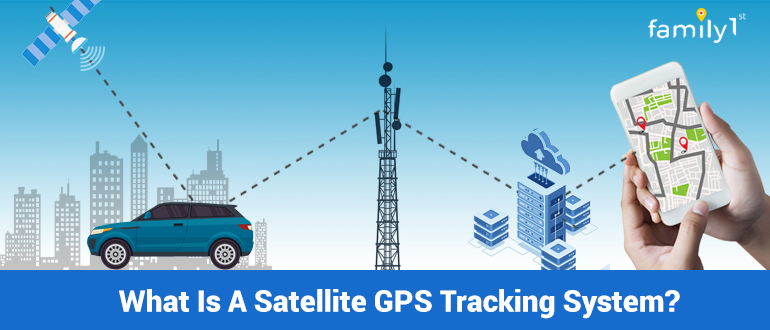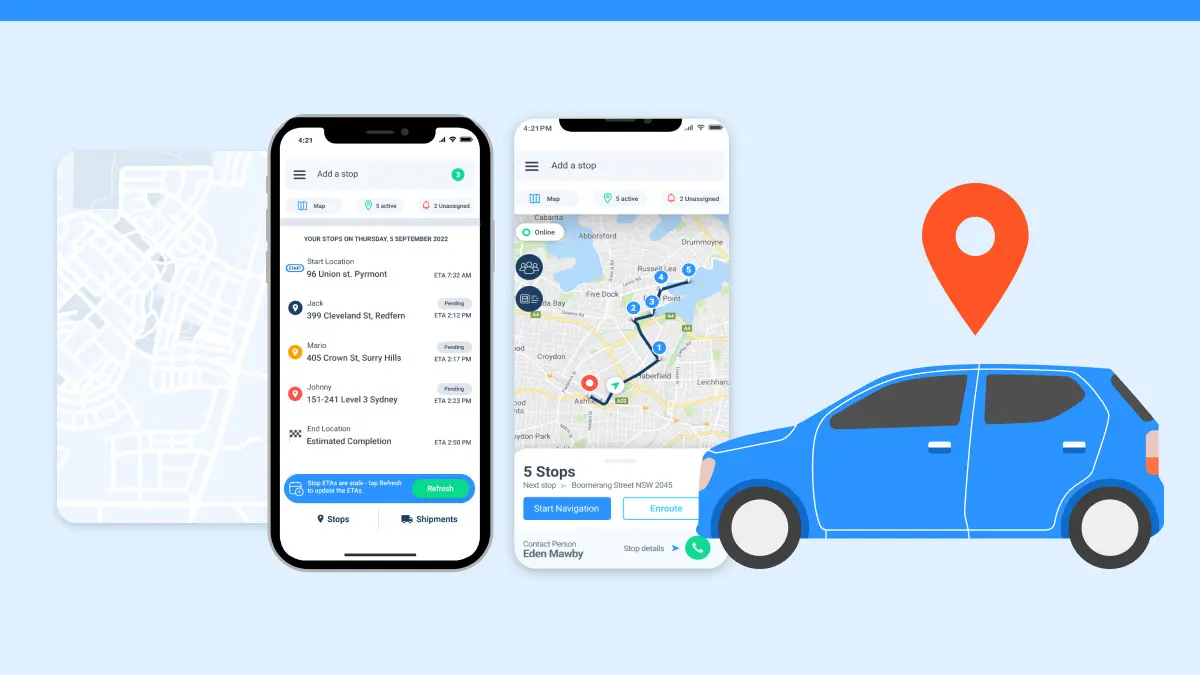Comprehending GPS Tracking: Modern Technology, Applications, and Benefits
Comprehending GPS Tracking: Modern Technology, Applications, and Benefits
Blog Article
Taking Full Advantage Of Effectiveness With GPS Monitoring: Techniques for Fleet Administration and Possession Tracking
In the realm of fleet monitoring and asset tracking, the utilization of General practitioner tracking systems has actually ended up being a cornerstone for boosting operational performance and efficiency. As we discover the numerous methods and strategies to optimize performance with General practitioner tracking, a world of possibilities opens up to redefine just how companies manage their fleets and check their possessions.
Applying Real-Time Tracking Systems
To make best use of functional effectiveness, business can carry out real-time tracking systems that offer immediate place information for their possessions. By using GPS modern technology, companies can gain real-time understandings right into the whereabouts of their cars, tools, and other valuable sources. This degree of presence permits firms to simplify procedures, boost performance, and boost overall efficiency.
Real-time monitoring systems supply numerous advantages for firms throughout different markets. With the capacity to keep track of possessions constantly, organizations can optimize routing, timetable maintenance much more effectively, and decrease the risk of burglary or loss. Moreover, these systems enable organizations to react promptly to any type of unexpected events or disruptions, ensuring minimal downtime and optimum performance.
Executing real-time radar calls for careful preparation and consideration of certain service needs. Firms should pick the ideal technology service provider, customize the system to fulfill their demands, and offer sufficient training to workers. By purchasing real-time monitoring solutions, businesses can stay in advance of the competitors, provide remarkable customer support, and achieve sustainable growth in today's busy market environment.
Optimizing Route Planning and Scheduling

One key strategy for maximizing route planning is to make use of historical information and real-time details to determine one of the most efficient courses for lorries. By evaluating previous courses and thinking about variables such as web traffic patterns and delivery home windows, organizations can create routines that lessen unneeded stops and hold-ups. Additionally, carrying out vibrant directing capacities enables changes to be made in real-time based on transforming conditions, making certain that chauffeurs constantly take the most efficient path to their location.
Enhancing Chauffeur Performance and Safety And Security
Enhancing driver efficiency and safety and security is critical in making sure the secure and smooth operation of a fleet. By using general practitioner monitoring technology, fleet supervisors can keep track of vehicle driver actions in real-time and give instant feedback to advertise secure driving techniques. This consists of surveillance rate restrictions, severe braking, acceleration patterns, and adherence to web traffic policies.
Furthermore, anchor GPS monitoring systems can assist in recognizing chauffeurs who may need additional training or assistance to improve their performance (gps tracking). By assessing data on driving routines and patterns, fleet managers can implement targeted training programs to attend to details areas of enhancement. This proactive method not only boosts overall chauffeur efficiency yet likewise adds to a more secure workplace for everybody involved
Along with performance monitoring, general practitioner tracking systems can also enhance vehicle driver security by providing emergency support attributes. In the event of a crash or breakdown, chauffeurs can rapidly send distress signals, allowing fleet supervisors to respond without delay and dispatch assistance when needed. On the whole, incorporating GPS tracking technology into fleet monitoring strategies is vital for enhancing driver efficiency and making sure the security of both possessions and chauffeurs.

Using Geofencing for Enhanced Safety And Security
Making best use of fleet protection goes beyond keeping an eye on driver efficiency and safety and security; one efficient method is through the calculated original site usage of geofencing modern technology. Geofencing permits fleet managers to develop online limits or geozones around details places, allowing them to get real-time signals when cars go into or leave these marked areas. By establishing geofences around high-risk areas such as building and construction websites, unapproved locations, or perhaps customer locations, fleet supervisors can boost safety steps and minimize prospective risks.
Geofencing not only enhances safety yet also enables quick action times in instance of unauthorized vehicle usage or theft. In the event of a breach, informs can be sent out to fleet supervisors, enabling them to take immediate action to locate and recuperate the vehicle. Furthermore, geofencing can aid in keeping an eye on vehicle movement during off-hours, guaranteeing that automobiles are not being made use of for unauthorized objectives.
Incorporating GPS Information for Strategic Decision-Making
Making use of GPS data combination is crucial for notified critical decision-making in fleet management operations. By incorporating GPS data into fleet monitoring systems, organizations can acquire valuable understandings into their procedures, resulting in much more efficient routes, boosted motorist actions, and much better general performance. Through the assimilation of GPS data, fleet supervisors can track lorry places in real-time, monitor fuel consumption, and analyze vehicle driver efficiency metrics such as speed, idling time, and harsh stopping.
Furthermore, integrating imp source GPS data permits the optimization of paths based on website traffic conditions, climate patterns, and various other outside aspects, aiding to lower shipment times and functional costs. By examining historical GPS information, fleet managers can determine trends, patterns, and areas for renovation, enabling them to make data-driven decisions that boost productivity and improve procedures.
Final Thought
In final thought, the application of GPS monitoring systems can greatly improve efficiency in fleet administration and property monitoring. By making use of real-time tracking, optimizing course preparation, enhancing motorist efficiency, utilizing geofencing for safety and security, and integrating GPS data for calculated decision-making, organizations can enhance procedures and accomplish cost savings (gps tracking). These methods make it possible for businesses to streamline processes, increase efficiency, and ultimately take full advantage of the general efficiency of their procedures
In the world of fleet administration and asset monitoring, the utilization of General practitioner tracking systems has actually become a keystone for boosting operational effectiveness and performance. As we check out the numerous strategies and strategies to take full advantage of efficiency with General practitioner monitoring, a globe of opportunities opens up to redefine exactly how companies manage their fleets and monitor their properties.
By making use of General practitioner tracking technology, fleet managers can check driver behavior in real-time and provide instant responses to advertise secure driving methods. Through the integration of GPS data, fleet supervisors can track car places in real-time, screen gas intake, and assess vehicle driver efficiency metrics such as speed, idling time, and harsh braking.
In final thought, the execution of GPS tracking systems can substantially enhance efficiency in fleet management and asset tracking.
Report this page